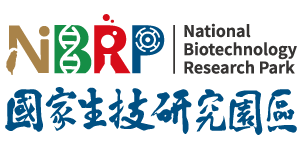-
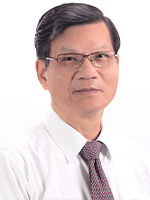 Chi-Huey Wong 翁啟惠
Chi-Huey Wong 翁啟惠Scripps Family Chair Professor, The Scripps
Research Institute
President Emeritus and Distinguished
Research Fellow, Academia Sinica
More Chi-Huey Wong 翁啟惠
Chi-Huey Wong 翁啟惠Scripps Family Chair Professor, The Scripps
Research Institute
President Emeritus and Distinguished
Research Fellow, Academia Sinica
Biosketch
Chi-Huey Wong has been a professor at The Scripps Research Institute since 1989 and is currently the Scripps Family Chair Professor of Chemistry with a joint appointment as Distinguished Fellow at Genomics Research Center, Academia Sinica. He received his BS and MS degrees from National Taiwan University, PhD in chemistry from MIT, and did his postdoctoral research at Harvard University before he joined the chemistry faculty of Texas A&M University in 1983. He is a recipient of the ACS Arthur C Cope Award, the Wolf Prize in Chemistry, the Welch Award in Chemistry, and the Tetrahedron Prize for Creativity in Organic Synthesis, and is a member of Academia Sinica, the American Academy of Arts and Sciences and the US National Academy of Sciences. He is interested in developing new methods to study biological glycosylation and to target cancer and viral infection with universal vaccines. (web:www.scripps.edu/wong)
-
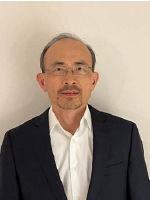 Herren Wu 吳和仁
Herren Wu 吳和仁President, HW Biologics Consulting, LLC
Former Senior Vice President, R&D,
AstraZeneca
More Herren Wu 吳和仁
Herren Wu 吳和仁President, HW Biologics Consulting, LLC
Former Senior Vice President, R&D,
AstraZeneca
Summary
•29-year experience in biologic drug discovery and development.
•50 issued US patents related to antibody/protein therapeutics and technologies.
•117 peer reviewed publications.
•7 FDA approved antibody therapeutics.
•Was responsible for AstraZeneca’s and MedImmune’s global biologic drug discovery and technology including antibody discovery, antibody/protein engineering, antibody-drug conjugates, bi-specifics/multi-specifics, therapeutic peptides, protein scaffolds, protein sciences, proteomics/metabolomics, structural biology, in vivo expressed biologics (AAV gene therapy, cell therapy and RNA/DNA therapy), and cell line generation.
•Played a key role in building AstraZeneca’s and MedImmune’s biologics pipeline for cancers, respiratory diseases, autoimmune diseases, inflammation, cardiovascular and metabolic diseases, infectious diseases and CNS/pain. His work has led to seven market approved biologics: (1) anti-PD-L1 antibody (Imfinzi®; durvalumab) for cancer treatment; (2) anti-IL-5α receptor antibody (Fasenra®; benralizumab) for severe eosinophilic asthma treatment; (3) anti-CD22 immunotoxin (LumoxitiTM; moxetumomab pasudotox) for hairy cell leukaemia; (4) anti-CD19 antibody (UPLIZNA™; inebilizumab-cdon) for the treatment of Neuromyelitis Optica Spectrum Disorder (NMOSD). (5) anti-type I interferon receptor antibody (Saphnelo™, anifrolumab) for systemic lupus erythematosus; (6) Evusheld™ (tixagevimab and cilgavimab), long-acting antibody combination for both prevention and treatment of COVID-19. (7) anti-IL-13 antibody (Adbry™; tralokinumab) for atopic dermatitis. Herren is also a co-inventor for inebilizumab and anifrolumab. In addition, he has helped build hundreds of biologics in research and development with >80 programs moved into clinical development.
•Education
1993-1995
Postdoctoral Fellow
Department of Molecular Biology
The Scripps Research Institute, La Jolla, California
Dr. Carlos F. Barbas, Supervisor.
1988-1993
Ph.D., Program in Molecular and Cellular Biology
University of Massachusetts, Amherst, Massachusetts
Dr. Robert A. Zimmermann, Advisor.
1982-1986
B.S., Department of Chemistry
National Taiwan University, Taipei, Taiwan, R. O. C.
•Professional Appointments and Activities
•Member of Scientific Advisory Board of the Development Center for Biotechnology (DCB) of Taiwan, a government-sponsored nonprofit organization (2014-present)
•Member of Industrial Advisory Board, Institute for Applied Life Sciences (IALS), University of Massachusetts, Amherst (2016-present).
•Editorial Board, mAbs journal (2008-present)
•Guest editor for a Methods issue (a companion journal to Methods in Enzymology) entitled “Humanized Antibodies and Their Applications” (May 2005).
•Ad hoc reviewer: mAbs; Gene Therapy; FEBS J; Vaccine; Antiviral Research; Expert Review of Anti-infective Therapy; Expert Review of Vaccines; Drug Discovery Today; Experimental Cell Research
•Member of UMass Amherst Life Sciences Strategy Executive Committee (2012-2013): to help determine the direction of significant new Life Science capabilities funded by ~$100 million grant.
-
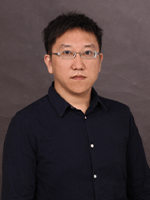 Hsing-Mao Art Chu 朱鑫懋
Hsing-Mao Art Chu 朱鑫懋Vice President of R&D, Immunwork, Inc.
More Hsing-Mao Art Chu 朱鑫懋
Hsing-Mao Art Chu 朱鑫懋Vice President of R&D, Immunwork, Inc.
Antibody drug conjugates (ADC) represent an effective approach for specifically delivering cytotoxic drugs to tumor cells, which internalize the ADC, degrade it in the lysosomes and release the cytotoxic drugs inside the cells. Production of ADCs involves the conjugation of cytotoxic drugs to antibody molecules. In earlier approaches, cytotoxic drugs are randomly conjugated to lysine or cysteine residues, which produces heterogeneous ADC molecules with varying numbers of drugs per antibody (DAR). The growing trend of ADC development is that the ADC product is homogeneous, stable, not prone to aggregate, and has a uniform and high DAR. For these goals, we have developed a proprietary “cytotoxic drug bundle” platform based on our multi-arm linker technology. These cytotoxic drug bundles include 3xlenalidomide bundle, 3xMMAE bundle, 4xMMAE bundle, 5xDM1 bundle, as well as other bundles carrying 3-5 drug molecules, etc. The combination of cytotoxic drug bundle and the molecular construct of scFv-fused IgG.Fc with a specified Cys-containing motif allows us to site-specifically conjugate two drug bundles to the thiol groups of the motif via thiol-maleimide Michael Reaction to form homogeneous ADC molecules with high DAR of 6, 8, or 10. Based on the 3xlenalidomide bundle, we have developed a homogeneous ADC candidate, TE-1146, which targets CD38 expressed by multiple myeloma cells. In several mouse models, TE-1146 displayed much stronger anti-tumor effects than approved drugs.
Biography
Hsing-Mao Chu received his Ph.D. degree from National Taiwan University in 2010. In his thesis he studied protein-protein and protein-ligand interactions at atomic resolution using X-ray crystallography. In 2011, he joined Dr. Tse-Wen Chang’s laboratory in the Genomics Research Center of Academia Sinica to work on CmX and anti-CmX antibodies against human membrane-bound IgE, employing various antibody-engineering methodologies. Since Immunwork Inc. was founded, he was hired as the Director of R&D of the company in 2015 and was promoted to V.P. of R&D in 2019. He is responsible for managing the R&D team to develop antibody-drug conjugates, antibody-radionuclide conjugates, and fatty acid bundle-conjugated ultra-long-acting peptide drugs based on the proprietary T-E technology. He is a co-inventor in more than 60 granted patents.
-
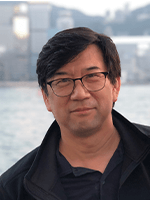 Cassian Yee 余嘉誠
Cassian Yee 余嘉誠Professor, Department of Melanoma
Medical Oncology, Division of Cancer
Medicine, The University of Texas MD
Anderson Cancer Center
More Cassian Yee 余嘉誠
Cassian Yee 余嘉誠Professor, Department of Melanoma
Medical Oncology, Division of Cancer
Medicine, The University of Texas MD
Anderson Cancer Center
Short BIO:
Dr. Yee is a Professor in the Division of Cancer Medicine, Director of Solid Tumor Cell Therapy, Director of the Program in TCR-based Therapeutics and Co-Director of the Adoptive Cellular Therapy Platform at UT MD Anderson Cancer Center. He received his medical training in Canada, residency at Stanford and fellowship at Fred Hutchinson Cancer Research Center. He is an elected member of the American Society of Clinical Investigators, CPRIT Clinical Investigator, co-Leader of the Stand Up to Cancer- AACR/CRI Dream Team and recipient of translational scientist awards from Burroughs Wellcome Fund, Damon Runyon Cancer Research Foundation, and the Rao Potul Basic Science Award. He holds an endowed position as the Kenneth Muller Professorship of Melanoma Research. Over the last 20+ years, Dr. Yee has pioneered a form of ACT, known as Endogenous T Cell (ETC) therapy, using peripheral blood to generate a uniform population of antigen-specific memory T cells. He has conceived and executed several IND-approved first-in-human clinical studies establishing principles of T cell persistence, memory and antigen-spreading as fundamental to the success of adoptive cell therapy in a modality known as Endogenous T Cell (ETC) therapy, including the first-in-class use of tetramer-guided cell sorting to generate memory T cells and the first prospective trial using ETC in combination with immune checkpoint therapy. He is corresponding or lead author in > 80 publications, including The New England Journal of Medicine, Nature, Science, Science Immunology, Science Translational Medicine, Nature Medicine, Journal of Clinical Oncology, Journal of Experimental Medicine, Gastroenterology and Cancer Immunology Research. He holds > 15 worldwide inventions on ex vivo generation of antigen specific T cells, memory reprogramming, and antigen discovery and seeks to extend immunotherapy-based cancer treatments globally. His work converges multidisciplinary and collaborative approaches in bioengineering, metabolism, molecular immunology and cellular biology to develop effective immunotherapy strategies and adoptive cellular therapy, in particular, as a treatment modality for patients with malignant diseases.
Abstract
Adoptive T cell therapy is emerging as an increasingly important therapeutic option for patients with cancer. Greater efficacy and broader applicability of this approach can be achieved by addressing two major challenges: T cell memory and target immunogenicity. Our studies using a form of adoptive cell therapy known as Endogenous T Cell (ETC) therapy have yielded durable clinical responses and instructed the design of strategies that epigenetically render longlasting central memory T cells. A deeper understanding of the intrinsic mechanisms leading to the generation of highly persistent T cells in ETC have been instrumental in designing memory T cells for TCR-T, CAR-T and TIL therapies. To more broadly apply this principle in the clinical arena, we have expanded the portfolio of TCR targets through an antigen discovery pipeline that uses tandem mass spectrometry, propietary filtering algorithms and a platform that uses ETC technology to empirically validate candidate epitopes. To date, we have identified more than 200 novel, shared tumor-associated epitopes among both common and rare tumors, for alleles representing > 80% of Caucasian and Asian populations. We plan to extend the global reach of adoptive cellular therapy by building upon these cornerstones of immunobiology and T cell-based therapies.
-
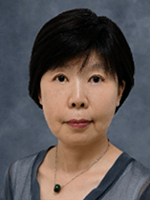 Sareina Chiung-Yuan Wu 吳瓊媛
Sareina Chiung-Yuan Wu 吳瓊媛CEO, GenomeFrontier Therapeutics Inc.
More Sareina Chiung-Yuan Wu 吳瓊媛
Sareina Chiung-Yuan Wu 吳瓊媛CEO, GenomeFrontier Therapeutics Inc.
Manufacturing CD20/CD19-targeted iCasp9 regulatable CAR-TSCM cells using qCART, the Quantum pBac-based CAR-T system
Dr. Sareina Wu leads a team of executives in managing the operations, scientific discoveries and research development, as well as setting the overall vision for GenomeFrontier. She is a pioneer in virus-free gene therapy and has been recognized internationally for her work in the field of piggyBac transposons. In striving to reach the pinnacle in the field of gene therapy, Dr. Wu founded the innovation-driven therapeutics company GenomeFrontier in 2018. Dr. Wu applied her research findings toward the development of four crucial proprietary virus-free gene and cell engineering platforms (GTailor™, Quantum Nufect™, Quantum pBac™ and iCellar™), which GenomeFrontier has leveraged to successfully create a robust cell engineering Quantum Engine™ system. This system has the potential to cure a wide range of diseases including cancer. In fact, Dr. Wu is currently utilizing this system to demonstrate its therapeutic effectiveness in cancer treatment. She leads the company research team in the development of several pipelines of chimeric antigen receptor T (CAR-T) and T cell receptor T (TCR-T) genetic reprograming cell products for cancer treatments.
Prior to founding of GenomeFrontier, Dr. Wu founded Celgenomics, LLC in 2007 in Georgia, USA where she focused on the development of human gene therapy for the treatment of neurodegenerative diseases. She also served as Assistant Research Professor at Chang Gung University and was a Faculty member at the Medical College of Georgia. Dr. Wu received her doctoral degree from Vanderbilt University under the mentorship of Drs. Brigid Hogan and Peter Kolodziej, and carried out her postdoctoral training at UC Santa Cruz.
Abstract
CD19-targeted chimeric antigen receptor therapies (CAR19) have driven a paradigm shift in the treatment of relapsed/refractory B-cell malignancies. However, >50% of CAR19-treated patients experienced progressive disease mainly due to antigen escape and low persistence. Clinical prognosis is heavily influenced by CAR-T cell function and systemic cytokine toxicities. Furthermore, it remains a challenge to efficiently, cost-effectively, and consistently manufacture clinically relevant number of virally engineered CAR-T cells. Using a highly efficient piggyBac transposon-based vector, Quantum pBac, we developed a virus-free cell engineering system, Quantum CART ( qCART™ ), for development and production of multiplex CAR-T therapies. Here, we demonstrated in vitro and in vivo that consistent, robust, and functional CD20/CD19 dual-targeted CAR-T stem cell memory (TSCM) cells can be efficiently manufactured using the qCART™ system for clinical application. qCART™-manufactured CAR-T cells from cancer patients expanded efficiently, rapidly eradicated tumors, and can be safely controlled via an iCasp9 suicide gene-inducing drug.
-
 Örn Almarsson
Örn AlmarssonPrincipal of AfiRx, LLC
Former CTO of Lyndra Therapeutics
More Örn Almarsson
Örn AlmarssonPrincipal of AfiRx, LLC
Former CTO of Lyndra Therapeutics
Abstract:
In the past decade messenger RNA (mRNA), the central molecule of molecular biology, has gone from being a research subject and tool to a source of drug development candidates. Despite molecular complexity, fragility and intracellular delivery challenge, the interest in pursuing mRNA vaccines and therapeutics has exploded in recent years. The power of in vitro transcribed (IVT) mRNA has been put to the test in re the COVID-19 pandemic. While mRNA vaccines against Covid19 have had most of the attention, along with a few other mRNA vaccine developments, many new mRNA products are being pursued as medicines. The talk will overview the technology, the delivery challenge associated with gaining high exposures to translated proteins from mRNA dosing and provide examples from the literature. The latter include mRNA encoding for antibodies in preclinical models and in humans. The place of mRNA technology in the history and future of drug modalities will be discussed.
BIO OF ÖRN ALMARSSON
Örn Almarsson, Ph.D., is the CTO of Lyndra Therapeutics. He joined the company in 2020. Dr. Almarsson has a record of innovation and achievement in pharmaceutical R&D dating back to the mid 1990s. He has been a catalyst of formulation design and drug development across delivery platforms as well as championing novel chemistry and engineering approaches to enable pharmaceutical products. Prior to joining Lyndra, Örn has made significant contributions in companies like Merck, Alkermes and Moderna. He is co-author on more than 70 scientific publications, some 60 patents and 3 book chapters. He serves on the scientific advisory board of a new RNA biotechnology company in the Boston area.
Dr. Almarsson holds a Ph.D. in bioorganic chemistry from the University of California, and a B.Sc. in chemistry from the University of Iceland. Aside from professional roles, he sits on the leadership council of International Institute of New England, which supports immigrants moving to the area. A former recording artist in Iceland prior to dedicating his career to research and development in pharmaceuticals, he enjoys playing the guitar and sampling fine wines in good company.
-
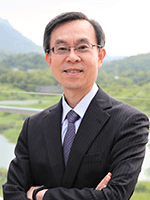 Han-Chung Wu 吳漢忠
Han-Chung Wu 吳漢忠Director, BioTReC
More Han-Chung Wu 吳漢忠
Han-Chung Wu 吳漢忠Director, BioTReC
Director of the Biomedical Translation Research Center (BioTReC), Academia Sinica,
Distinguished Research Fellow of the Institute of Cellular and Organismic Biology, Academia Sinica
Fellow of the National Academy of Inventors (NAI)
Dr. Han-Chung Wu is currently a Distinguished Research Fellow of the Institute of Cellular and Organismic Biology, Academia Sinica, Taiwan. He is also a Professor at the College of Medicine of the National Taiwan University. His research primarily focuses on two fields, cancer research and infectious diseases, and includes components of both basic research and applied science. Dr. Wu's research interest focuses on the identification of novel tumor antigens, development of targeting drug delivery systems for cancer therapy and molecular imaging. He has developed phage display technologies for the generation of fully human monoclonal antibodies and the identification of peptides for a variety of target molecules. As of today, Dr. Wu has published over 128 original articles in world-renowned journals, and 122Patents (including 84 granted patents and 38 filed patents). He has successfully licensed out 20 technologies from 68 patents to biotech companies. Seven of the licensed technologies serve as the basis for products that are currently in clinical trials or already on the market. Seven of the licensed technologies are currently in preclinical studies for the development of therapeutics. Hence, his research results not only have significant value in basic research, but also practical applications with tangible contributions to the development of the biotech industry and drug development. Dr. Wu was elected as a Fellow of the National Academy of Inventors (NAI) of the United States in 2020. This is among the highest achievable honors for an academic inventor.
Aside from conducting research, Dr. Wu has also been responsible for coordinating academic activities and overseeing administration at the Institute of Cellular and Organismic Biology as the Vice Director and Acting Director. He had also served as the Director of the Department of Intellectual Property and Technology Transfer, Academia Sinica, to promote the protection of intellectual property and the technology transfer, and use the industrialization of intellectual property rights to enhance social welfare. In 2019, Dr. Wu joined National Research Biotechnology Park (NBRP), Academia Sinica, as Chief Executive Officer of BioHub Taiwan. He is currently serving as the Director of Biomedical Translation Research Center, NBRP, Academia Sinica, with the mission of promoting the biotechnology industry development in Taiwan.
Professional Experience
•Director, Biomedical Translation Research Center, Academia Sinica, Taiwan
•Distinguished Research Fellow, Institute of Cellular and Organismic Biology, Academia Sinica
•Chief Executive Officer, National Biotechnology Research Park/BioHub Taiwan
•Director, Department of Intellectual Property and Technology Transfer, Academia Sinica
•Acting Director, Institute of Cellular and Organismic Biology, Academia Sinica
•Vice Director, Institute of Cellular and Organismic Biology, Academia Sinica
•Research Fellow, Institute of Cellular and Organismic Biology, Academia Sinica
•Joint Appointment Professor, Institute of Pathology; and Graduate Institute of Oral Biology, College of Medicine, National Taiwan University
-
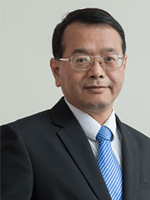 Chung-Hsiun Wu 吳忠勳
Chung-Hsiun Wu 吳忠勳President, DCB
More Chung-Hsiun Wu 吳忠勳
Chung-Hsiun Wu 吳忠勳President, DCB
Education
▌Ph.D. in Biochemistry, University of Maryland, U.S.A.
▌B.Sc. in Botanics, National Taiwan University, Taiwan
Experience
▌2018~ present, President, Development Center for Biotechnology (DCB)
▌Director, Biotechnology and Pharmaceutical Industries Promotion Office, MOEA
▌Chairman, Taiwan Bio Industry Organization
▌Chairman, Taiwan Antibody Association
▌Vice President, Precision Medicine & Molecular Diagnostics Industry Association of Taiwan
▌Director, Institute for Biotechnology and Medicine Industry(IBMI)
▌Director, Taipei Biotechnology Service and Business Trade Association
▌Director, Chinese Association for Industrial Technology Advancement
▌Director, Taiwan Pharmaceutical Manufacture and Development Association
▌Supervisor, Monte Jade Science and Technology Association of Taiwan
▌2017~ 2018, Acting President, Development Center for Biotechnology (DCB)
▌2017~ 2018, Vice President, Development Center for Biotechnology (DCB)
▌2014~2017, Executive Director, Institute of Biologics, Development Center for Biotechnology (DCB)
▌2013~2014, Director/Senior Research Fellow, Department of Protein Engineering, Development Center for Biotechnology (DCB)
▌2008~2009, Founder/Chairman/CEO, Geniusway Biotech.
▌2006~2008, Founder/Chairman/CEO, Geniusway Technology
▌2000~2004, Cofounder/Chief Scientific Officer/Vice President of Business Development, AbGenomics Inc.
▌1996~2000, Associate Professor, Institute of Molecular Medicine, College of Medicine, National Taiwan University
▌1995~1996, Lecturer, Institute of Molecular Medicine, College of Medicine, National Taiwan University
▌1992~1995, Jane-Coffin-Childs Memorial Fund Fellow, Department of Embryology, Carnegie Institution of Washington, Baltimore, Maryland, USA
-
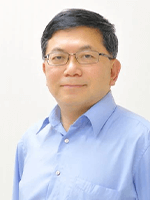 Lee-Cheng Liu 劉理成
Lee-Cheng Liu 劉理成CEO, EirGenix Inc.
More Lee-Cheng Liu 劉理成
Lee-Cheng Liu 劉理成CEO, EirGenix Inc.
Dr. Liu has 30 years of product, process development and manufacturing experience in biotech, pharmaceutical and specialty chemical industries. Prior to returning to Taiwan to start up EirGenix, Dr. Liu was the President and COO of AnGes Inc., a biotech enterprise in its late developmental stage.
He joined AnGes in 2002 as a Vice President of Product Management. He also served as a Vice Chairman in the Supervisory Board of Avontec GmbH, a Munich based joint venture with AnGes, from 2004 to 2010.
Before his tenure with AnGes, he had served various management and professional positions to lead product/process development at GenVec, Novartis, W.R.Grace & Co. and Halcon SD.
Dr Liu holds a doctoral degree in Chemical Engineering & Applied Chemistry from Columbia University, and a BS degree in Chemical Engineering from National Taiwan University.
-
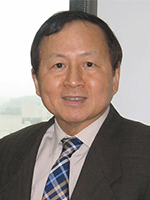 Tse-Wen Chang 張子文
Tse-Wen Chang 張子文President,
Immunwork, Inc.
More Tse-Wen Chang 張子文
Tse-Wen Chang 張子文President,
Immunwork, Inc.
EDUCATION AND POSITIONS HELD:
•B.S. & M.S., Chemistry, National Tsing Hua University, Taiwan, 1966-1972
•Ph.D., Cell and Developmental Biology, Harvard University, 1973-1977
•Postdoctoral Fellow, Center for Cancer Research, M. I. T., 1977-1980
•Supervisor of Cellular Immunology, Ortho Pharmaceutical Corp., 1980-1981
•Director of Immunology, V. P. of Research, Centocor, Inc., 1981-1985
•Professor of Molecular Virology, Baylor College of Medicine, 1986-1991
•Cofounder 1986, and V.P. of R & D, 1986-1996, Tanox, Inc., Houston
•Professor 1996-2003; Dean 1996-1999; Tsing Hua Professor of Life Science 2003-2006; College of Life Science, National Tsing Hua University
•President, Development Center for Biotechnology, Taipei, 2000-2003
•Distinguished Professor, Genomics Research Center, Academia Sinica, 2006-2015
•Distinguished Visiting Chair, Genomics Research Center, Academia Sinica, 2016-present
RESEARCH INTERESTS:
•New drug discovery and antibody engineering
•The main focus of our group is to develop humanized antibody-based and immunogen-based therapeutics, which target key molecules involved in IgE-mediated allergic pathway. We are also developing new technology platforms for improved antibody engineering. One such program is to develop humanized antibody against CεmX domain in human membrane-bound IgE, for the purpose of controlling IgE-expressing B lymphocytes. CεmX, discovered by our group, is a 52 a.a. domain with a unique sequence. Anti-CεmX, if successfully developed, may be used in combination with an anti-IgE antibody, such as omalizumab (trade name Xolair), which is also derived from Dr. Chang's invention and which is approved for allergic asthma.
-
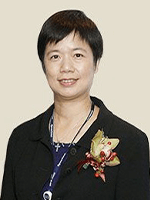 Karen Wen 溫國蘭
Karen Wen 溫國蘭COO, GenomeFrontier
More Karen Wen 溫國蘭
Karen Wen 溫國蘭COO, GenomeFrontier
2019.3 - present
Chief Strategy Officer (CSO)Chief Strategy Officer (CSO), GenomeFrontier
therapeutics,Inc.
Experience
2011-2018 President of Mycenax Biotech Inc.
2001-2011 Vice President and Manager, Department of Quality Assurance of Mycenax Biotech Inc.
Co-founder of Mycenx Biotech Inc. Specialized in drug development, biological development,PIC/S GMP and GDP, IVD development, ISO system, monoclonal antibody development, and business development.
1993-2000
Principal Researcher, Development Center for Biotechnology
Research Fellow of Development Center for Biotechnology, and head of research and development of ISO plant for IVD
Education
Old Dominion University/ Eastern Virginia Medical School
Doctor of Philosophy – PhD, Biomedical Science
National Taiwan University
Bachelor of Science – BS, Chemistry
-
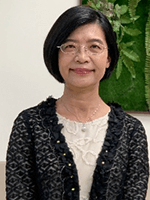 Lih-jiuan Hsu 徐麗娟
Lih-jiuan Hsu 徐麗娟Deputy Executive Director,
Center for Drug Evaluation
More Lih-jiuan Hsu 徐麗娟
Lih-jiuan Hsu 徐麗娟Deputy Executive Director,
Center for Drug Evaluation
Dr. Lih-jiuan Hsu joined Center for Drug Evaluation (CDE) in 2002, leading CDE previously as Director of Division of New Drugs, Center of Consultation, and Senior Executive Officer in Office of Executive Director, devoting herself in the development of regulatory science in Taiwan for about 20 years. Besides Deputy Executive Director of CDE, Dr. Hsu is also the Adjunct Attending Physician of Family Medicine in National Taiwan University Hospital (NTUH) and the Thesis Advisor in Department of Pharmacy and Graduate Institute of Clinical Pharmacy in National Taiwan University (NTU). Before joining CDE, Dr. Hsu was a practicing family physician. Dr. Hsu obtained her MD degree from China Medical University.
-
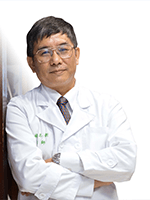 James Chih-Hsin Yang 楊志新
James Chih-Hsin Yang 楊志新Superintendent, NTU
Cancer Center
More James Chih-Hsin Yang 楊志新
James Chih-Hsin Yang 楊志新Superintendent, NTU
Cancer Center
Superintendent Office Superintendent Lung Cancer Attending Physician Department of Medical Oncology Attending Physician
Basic and Clinical Oncology, Anticancer Drug Research and Development, Chemical Drug Resistance, Clinical Trials, New Anticancer Drug Development, Lung Cancer Immune Microenvironment.
Education
National Taiwan University Graduate Institute of Clinical Medicine, College of Medicine Ph.D. National Taiwan University School of Medicine, College of Medicine M.D. Current Positions
National Taiwan University Cancer Center Superintendent 2020--present Cancer Administration and Coordination Center, National Taiwan University Hospital Director 2016--present Graduate Institute of Oncology, College of Medicine, National Taiwan University Director 2015--present Graduate Institute of Oncology, College of Medicine, National Taiwan University Professor 2009--present The Ph.D. Program for Translational Medicine, College of Medicine, National Taiwan University Professor 2012--present Graduate Institute of Clinical Pharmacy, College of Medicine, National Taiwan University Professor 2008--present Graduate Institute of Clinical Medicine, College of Medicine, National Taiwan University Professor 2008--present Department of Oncology, National Taiwan University Hospital Adjunct Attending Physician 2020--present -
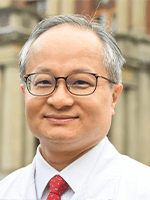 Chiun Hsu 許駿
Chiun Hsu 許駿Director, Department of Medical Research and Education, NTU Cancer Center
More Chiun Hsu 許駿
Chiun Hsu 許駿Director, Department of Medical Research and Education, NTU Cancer Center
Department of Medical Oncology Director Department of Medical Research and Education Director Gastric Cancer Attending Physician
Medical oncology, hepatobiliary cancers, cancers of the digestive system, clinical trials
• EDUCATION
National Taiwan University College of Medicine, Graduate Institute of Clinical MedicinePh.D.1999-2004
National Taiwan University College of Medicine, Department of MedicineM.D.1999-2020
• CURRENT POSITIONS
Department of Medical Oncology/ Department of Medical Research and Education, National Taiwan University Cancer CenterDirector2020—present
Graduate Institute of Oncology, College of Medicine, National Taiwan UniversityProfessor2015--present
-
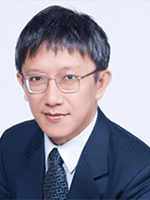 Chia-Chi (Josh) Lin 林家齊
Chia-Chi (Josh) Lin 林家齊Professor, Graduate Institute of Clinical Medicine, NTU
More Chia-Chi (Josh) Lin 林家齊
Chia-Chi (Josh) Lin 林家齊Professor, Graduate Institute of Clinical Medicine, NTU
Department of Medical Oncology Adjunct Attending Physician
Medical treatment of lung cancer, esophageal cancer, and thyroid cancer; oncology phase I trials
Education
National Taiwan University Graduate Institute of Clinical Medicine Ph.D. National Taiwan University Department of Medicine M.D. Current Positions
Graduate Institute of Clinical Medicine, National Taiwan University College of Medicine Professor Department of Oncology, National Taiwan University Hospital Attending Physician





